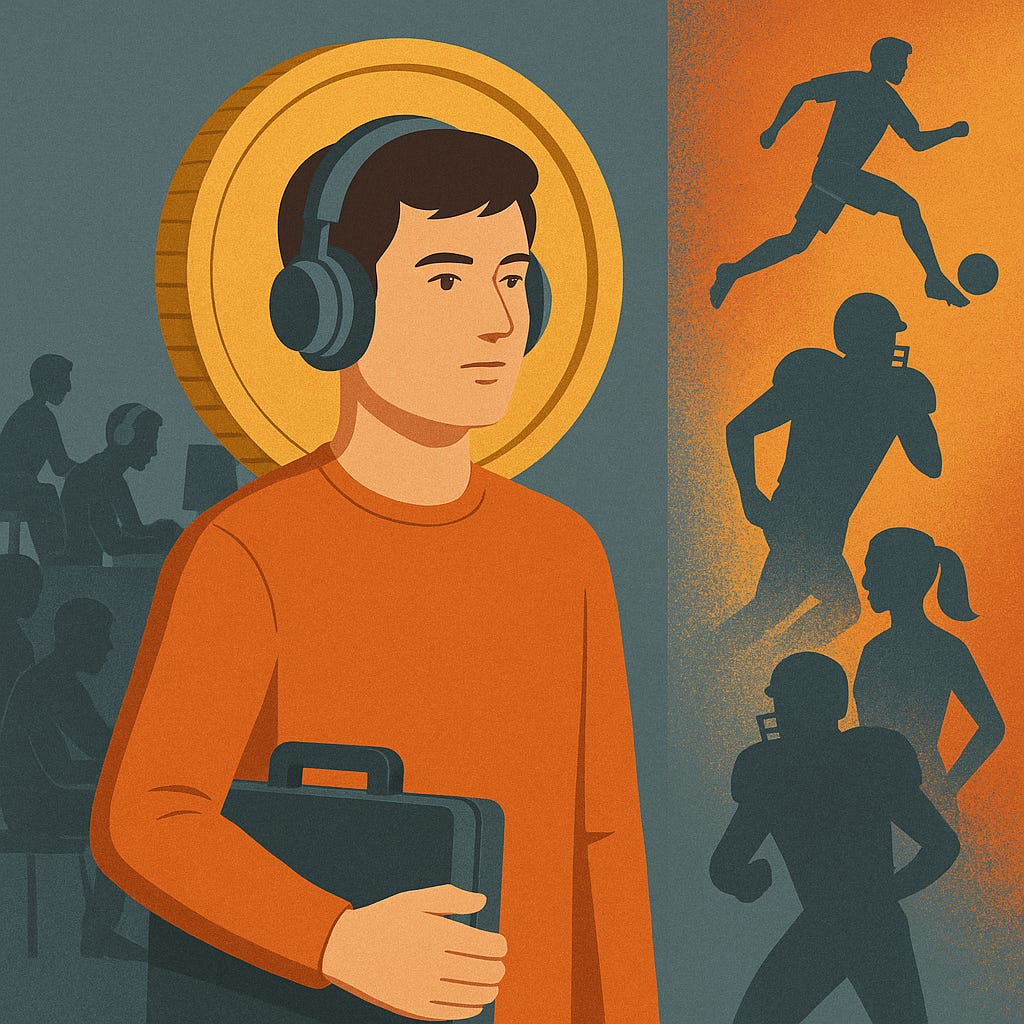The New Frontier in Tech: AI Engineering Talents Commanding Fortunes
A new era where the brightest minds drive the world’s most lucrative sectors forward
As AI continues its rapid evolution, the landscape of compensation for those responsible for shaping the future of technology is undergoing a seismic shift. The astronomical pay packages now offered to engineers, akin to the lavish salaries of elite athletes, signal a bold new era in which talent acquisition may become as vital to a company's success as the underlying product itself.
Talent acquisition may become as vital to a company's success as the underlying product itself
Take, for example, the recent news that Meta handed a staggering $250 million to a 24-year-old AI engineer. This monumental payout has raised eyebrows in the tech industry, yet it underscores a truth that is becoming increasingly clear: the war for AI talent has reached unprecedented heights. To put this into perspective, such sums place these young engineers in the realm of top-tier professional athletes, like football stars whose careers are built on minute differences in performance and the potential to alter the course of entire industries.
This juxtaposition raises a fascinating question: can the rewards given to engineers truly be justified in a market that thrives on such unpredictable human potential? The answer lies in understanding the psychology, strategy, and economics behind these hefty compensation packages, which are not just about high salaries but rather about the creation of ecosystems that foster breakthrough innovations in a trillion-dollar industry.
Elite Engineers: The New Superstars
When we consider elite athletes, we see a market driven by a fundamental principle: a tiny difference in performance can often mean the difference between success and failure. In football, for instance, the marginal edge a team gains from a highly skilled player—whether through a crucial goal, assist, or strategic defensive play—can determine a season's outcome. The same principle is now applying to AI engineers. A single breakthrough innovation, a cutting-edge algorithm, or the development of a transformative application can, in theory, unlock billions of dollars in value.
As AI begins to permeate every sector from healthcare to finance, the market’s understanding of the talent behind these innovations is evolving. Companies like Meta, Google, and OpenAI are in a race to hire the brightest minds, betting that each hire could be the key to a monumental leap forward. Just as a football team might be willing to pay millions for a player who could lead them to the championship, so too are tech giants prepared to fork out sums that were once reserved for C-suite executives to secure a single engineer capable of changing the game.
Companies like Meta, Google, and OpenAI are in a race to hire the brightest minds, betting that each hire could be the key to a monumental leap forward
The psychological aspect is equally important here. High-level athletes are often driven by a combination of natural talent, ambition, and a desire to win. Engineers in AI share these same attributes, but with a twist. They operate in a world where their work directly intersects with the future of humanity itself—pioneering advances in automation, healthcare, and even ethics. The allure of solving complex problems and creating something that could change the world is an intoxicating motivator. However, as salaries climb, so too do the expectations—both from the companies that hire them and the engineers themselves.
The Paradox of Overcompensation and Market Demand
At first glance, paying a 24-year-old engineer $250 million may seem excessive, especially in comparison to the traditional tech salary model, where compensation is relatively well-standardised. This is where the paradox arises. Conventional economics suggests that when salaries become disproportionately high, there should be a balance in the form of increased supply—more engineers trained, more talent entering the market. However, the market for AI engineers is uniquely constrained.
Unlike other fields, where education systems can ramp up supply over time, AI and machine learning are cutting-edge disciplines that require years of highly specialised study and experience to master. The global supply of AI engineers is not just limited—it's finite. As AI becomes more integral to society, this scarcity becomes more pronounced. Therefore, it is not simply a question of finding people who can perform the job; it's about identifying a particular subset of individuals who can push the boundaries of what is technologically possible.
This demand-supply imbalance is key to understanding why some engineers are commanding such enormous salaries. Unlike other industries, where salary increments follow predictable patterns, the wages in AI are spiralling into uncharted territory. In a market where trillions of dollars are at stake, it’s a logical investment for companies to secure the very best.
Strategic Implications: Building Teams, Not Just Hiring Talent
AI-driven innovation requires not just isolated moments of genius but collaborative ecosystems where exceptional individuals can complement each other. The strategic imperative, therefore, is not just to hire a handful of superstars, but to build teams capable of pushing technological boundaries in ways that others cannot. This is where comparisons to sports teams become particularly apt. In football, the best teams are often not defined by a single player but by the synergy between them—the quarterback, the wide receiver, the midfielder, the defenders. A successful AI team must similarly balance the talents of various individuals with expertise in different subfields: data science, machine learning, ethics, and beyond.
The nature of AI development is such that even a minor difference in the collective capabilities of a team can lead to huge advances. Imagine a team of engineers capable of devising a quantum leap in AI efficiency, outperforming competitors by a small but decisive margin. That differential, however minute, could have ripple effects across an entire industry, unlocking new markets, solving previously unsolvable problems, or achieving regulatory breakthroughs. The economic impact is likely to be in the billions, making the initial compensation seem not only justifiable but essential.
A World of Trillions: The Competitive Edge of Exceptional Talent
This is the crux of why AI salaries are heading into astronomical territory. The market for AI is so large, so potentially lucrative, that even a slight improvement in technology could redefine the global economy. We're not talking about incremental changes; we're talking about the possibility of creating a new industrial revolution, with AI acting as the primary driver. For companies, the potential payoff from securing the right talent is so great that the risks of overpaying seem almost trivial.
In the coming decades, as AI's role continues to expand, the value of the right engineer will likely become even more pronounced. As more industries are disrupted and transformed by AI, the engineers leading those efforts will no longer be viewed as just employees. They will be seen as invaluable assets, capable of altering the course of entire sectors and economies. And like the elite athletes before them, their compensation will reflect the value they create.
They will be seen as invaluable assets, capable of altering the course of entire sectors and economies. And like the elite athletes before them, their compensation will reflect the value they create.
In this context, the traditional salary structures that have governed the tech industry will eventually give way to a much more dynamic and fluid system. Salaries will no longer be bound by conventional market forces, but by the precise value that top-tier engineers bring to their companies. In the race to define the future of technology, the best engineers are poised to become the most coveted, and well-compensated, players in the global economy.
Beyond the Numbers
The extraordinary pay packages being offered to AI engineers are a reflection not just of their talent, but of the economic and strategic importance of the field they inhabit. As the AI market continues to expand and as the value of talent becomes increasingly quantifiable, the market for exceptional engineers will continue to defy traditional logic. Just as in elite sports, where a single individual's contribution can change the fate of a team or even a nation, the right AI engineer can change the future of industries worth trillions of dollars. This is not merely an economic trend; it is the dawn of a new era where the brightest minds drive the world’s most lucrative sectors forward.



